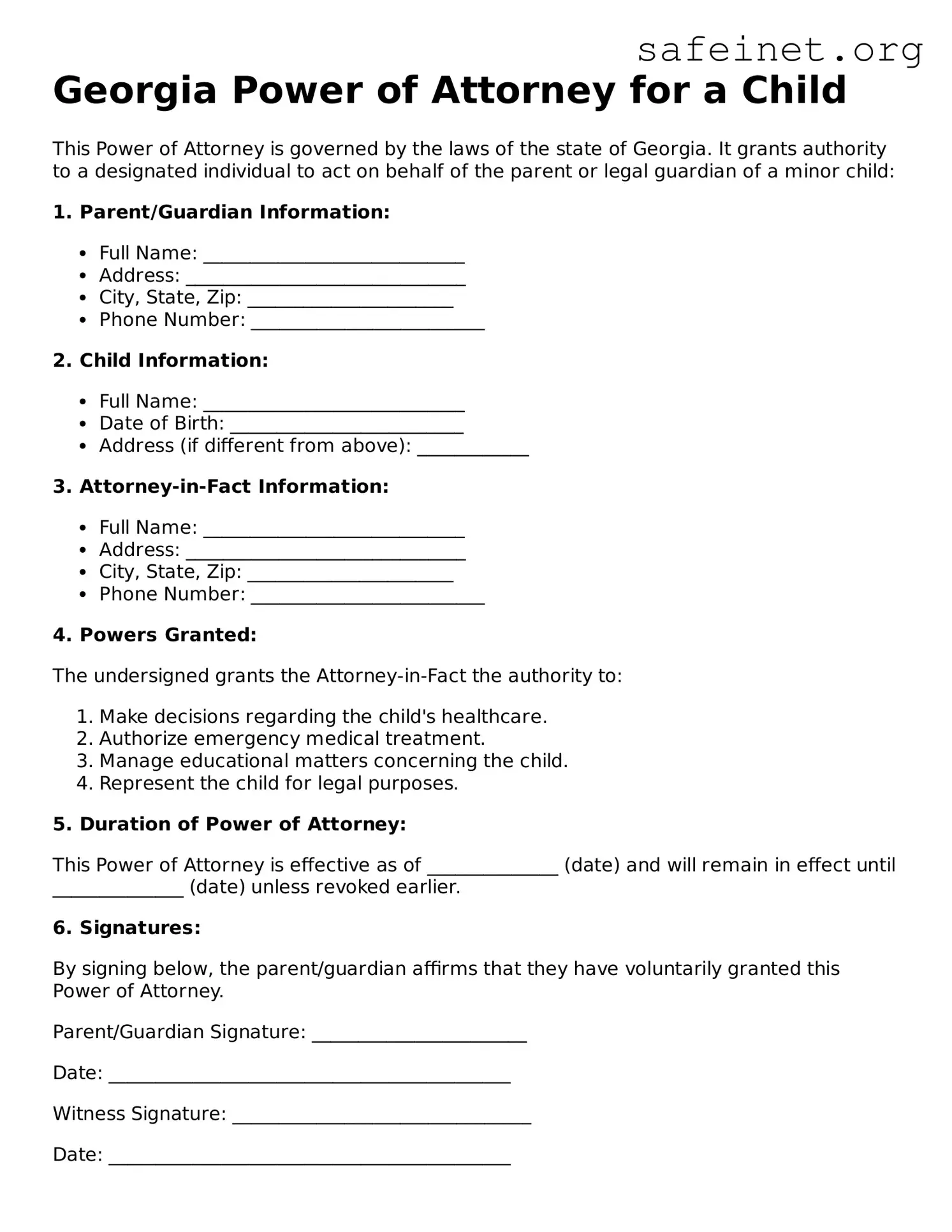What is a Georgia Power of Attorney for a Child form?
The Georgia Power of Attorney for a Child form allows a parent or legal guardian to designate another person to make decisions on behalf of their child. This is often necessary when the parent cannot be present to provide care or make decisions due to work, travel, or other commitments. The designated individual can be a family member, friend, or trusted person.
When should I consider using this form?
This form is useful when parents are temporarily unable to care for their child. For instance, if you are going on a business trip, vacation, or facing a medical situation, and you need someone else to take charge of your child's needs, this document provides you with a solution.
Who can be appointed as an attorney-in-fact?
Any competent adult can be appointed as an attorney-in-fact. This could be a grandparent, relative, friend, or another trusted adult. The key factor is that the person must be capable and willing to take on the responsibility of caring for your child.
How long is the Power of Attorney for a Child valid?
The document can specify a duration for which it is effective. If a timeframe isn't mentioned, it is considered valid until revoked or until the child reaches the age of majority, which is 18 in Georgia. It is crucial to clarify the scope and duration in the form to avoid confusion.
Do I need to have the form notarized?
Yes, it's recommended to have the form notarized to ensure its legality and acceptance. Notarization serves as a safeguard against any potential disputes regarding the authenticity of the document.
Can I revoke a Power of Attorney for a Child once it is in effect?
Absolutely. A Power of Attorney can be revoked at any time, as long as you provide notice to the attorney-in-fact and potentially those relying on the authority. Communicating your decision to revoke should be clear and documented to prevent misunderstanding.
What rights does the attorney-in-fact have?
The attorney-in-fact has the authority to make decisions related to the child’s welfare, including educational and medical decisions. However, the exact powers should be detailed in the form. You can limit or expand these powers based on your preferences.
Is there a fee for using this form?
There is no specific fee for creating the Power of Attorney for a Child form itself. However, there may be costs associated with notarization or legal advice if you choose to seek assistance. It’s best to create the document accurately to avoid potential issues down the line.
What if the child has special medical needs?
If your child has special medical needs, detail those in the Power of Attorney form. You can provide specific instructions regarding medical care or any other considerations the attorney-in-fact should manage. Being thorough ensures that your child’s needs are met appropriately.
Where can I obtain the Power of Attorney for a Child form?
The form can typically be found online through the Georgia government’s official website. You might also consult legal websites or local legal aid organizations. Always ensure you are using the latest, official version of the form to guarantee compliance with current laws.
